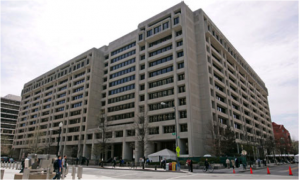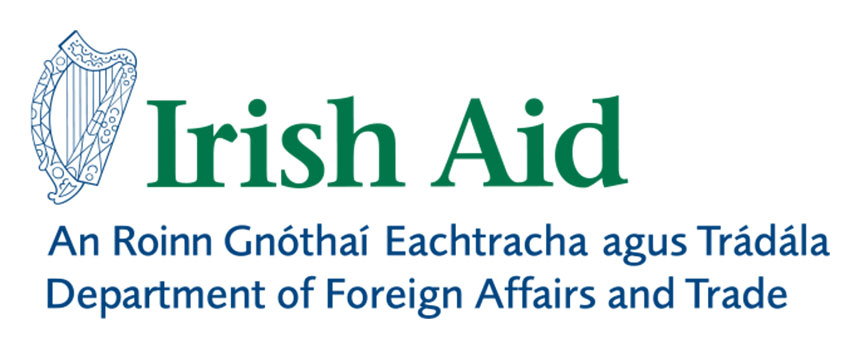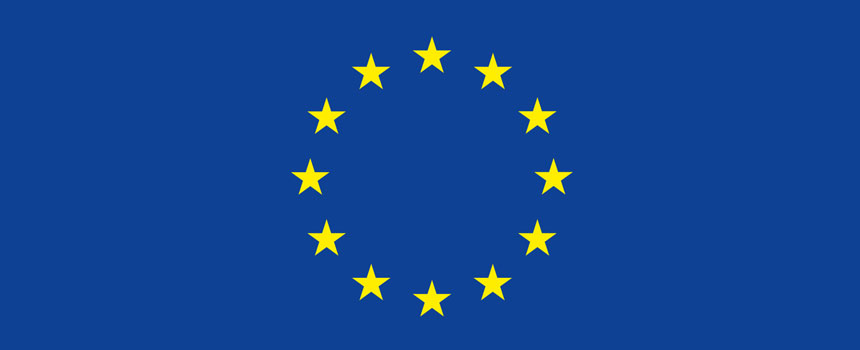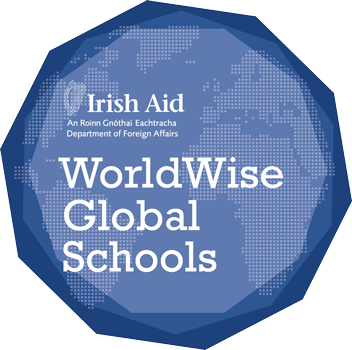Power and Decision Making in the Global Economy
January 14th, 2016 - Fergal Finnegan
Power and Decision Making in the Global Economy ....or 'Why We Need to Learn to Swim in Alphabet Soup'
In Ireland, the crisis has cooled and congealed into a set of hard lessons about the necessity of living with less. Most of us have less money and resources, and year after year cuts means that health, education, and welfare services are now badly underfunded. But there has certainly been no shortage of one thing since 2010 – we have had regular servings of a thick and indigestible alphabet soup. I mean lots and lots of Troika talk: ‘the IMF-EU-ECB says this’, ‘the IMF-EU-ECB requires that’ and on and on it went. Of course the government had to listen to all this ‘advice’ very carefully. And what did it all boil down to? A stern instruction to quietly shoulder an immense amount of bank debt and follow up demands that we should cut budgets, make up new taxes, spend less and keep our expectations firmly in check. Now, even though the Troika have supposedly left these shores, they continue to shape policy; for example the International Monetary Fund (IMF) recently made it clear that it expects the government to keep the thumbscrews on, and in fact wants 2.1 billion worth of cuts![1]. The human consequences of another round of cuts will undoubtedly be very serious. But this sort of pronouncement is worrying in another sense as well. When decisions of this magnitude are being steered in this way, it seems to me that not only do we have less in our pockets, we also have far less power to question, to intervene or to shape the society we live in.
So how does all this horse-trading over our future work exactly work in practice and who sets the agenda between the various Troika members and the state? Well the truth is we do not know the full story. As the authors of Conditionally Yours point out, much of what has gone on remains ‘shrouded in secrecy’. I think this is intentional. One of the advantages of doing things in this manner is that you do not have to risk getting involved with the messy business of accountability, and political choices can be dressed up as necessities. The government says their hands are tied and the Troika say they are just offering advice, and in this back and forth the ultimate responsibility for austerity and the corrosion of democracy is left unclear. Thus the financial meltdown, the failings of the Irish political and business elite, the policies of the Troika etc., becomes something that ‘just happened’; akin to a particularly cutting Arctic wind which arrived unbidden and is clearly unwanted, but all you can realistically do is hope it stops blowing. But nice simple tales of a wonky economy ‘fixed’ by austerity policies developed by drawing on the expertise of IMF-EU-ECB tells us precisely nothing about what happened, who is currently calling the shots in Ireland, and in the end strips us of our power to act in an informed way in the future.
So what can we do in response? Well, lots of things, and for a start I think becoming acquainted with a little bit of history goes a long way to cutting through the fog of rhetoric, jargon and hazy explanations. While we may never find out exactly what has occurred between the Troika and the Irish state we can easily examine the history and function of each of the major actors in this shoddy and costly drama and come to a fairly accurate understanding of who is wielding power in Ireland and further afield. So as part of this process let’s now look at one of these bodies- the IMF.
What is the IMF?
The IMF has been right at the heart of the global monetary system for over six decades. It is one of the Bretton Woods institutions, established at the end World War II in order to direct post-war economic development (see The Bretton Woods Project articles for a useful introductions). The IMF was formed in order to overcome obstacles to international trade and deal with potential problems in currency exchange which create instability in markets and in particular to act as ‘the lender of last resort’ during credit squeezes. Avoiding credit crunches is enormously important to global capitalism; as we know from recent history, when money and capital stop flowing the whole system can seize up. However, as we shall see, the IMF’s remit goes far beyond ensuring monetary stability.
Today most of the planet’s nation states are members of the Fund and it is one of the most influential economic institutions in the world. Through its members’ contributions, the IMF has amassed enormous resources: the exact size of its fund has varied over its history but in recent years it has been reported to have up to 1.4 trillion dollars at its disposal.[1] This means that the IMF is one of the world’s biggest public lenders, and through the terms and conditions it attaches to its loans, and through economic monitoring and policy advice, the Fund exerts a great deal of sway in international economic affairs, especially in periods of crisis (again this is covered in more detail in Conditionally Yours).
What the IMF does
Even in the IMF’s own terms it has a patchy record, and has often failed to predict, offset or overcome crises (see Triplecrisis which examines this).[2] Tellingly the organisation has also been repeatedly criticised for a lack of transparency. These complaints have been most frequently made by organisations from the Global South who point out that the voting system (which uses quotas based on the amount member states financially contribute to the IMF) has favoured wealthy Western states, and that this has copper fastened global inequalities in wealth and power.[3] Certainly there can be little doubt that the USA – the most influential member of the fund – has used the IMF to advance its own national and corporate interests.
But I think we need to dig deeper and go beyond criticisms of the ‘loaded game’ built into the IMF’s internal structure and the use of the institution by certain nation states for its own ends. These things are important, but what I think is truly significant is the IMF’s promotion of free market ideas across the globe, and its capacity to build transnational alliances between elites in support of this aim (this is illustrated in the short film Our Land, Our Business). In short the IMF has a very clear political programme and the power to act on it without being subject to any meaningful form of popular accountability. Since the 1980s IMF policies have pushed a type of ‘free market fundamentalism’. Wherever the IMF comes to town the first and last item on the agenda is market liberalisation and this is demanded regardless of the specific circumstances, history and needs of a given country and its people. This is primarily achieved by attaching stringent terms and conditions to their loans (for example demanding cuts in spending, market deregulation and pushing for the privatisation and commodification of resources, services and utilities etc.). And as we have learnt in Ireland, these ‘conditionalities’ then set powerful limits on what can be thought and said. The abject failure[4] of this ‘one size fits all’ approach to development in many regions has not proved to be an obstacle to the IMF continuing down this road.
Grassroots responses to the IMF
Grassroots organisations have regularly mobilised against the IMF in various ways. The Fund has encountered mass and serious opposition in Africa, Latin America and Asia in the past thirty years. Similarly, in the Global North in recent years we have seen massive anti-austerity protests in Greece in 2010 and 2011, Spain in 2011, and things like ‘anti-summit’ protests in Prague in 2000[1], which have involved hundreds of thousands of people, right through to small symbolic actions like those recently mounted against the current head of the IMF Christian Lagarde in May.[5]
While activists are broadly agreed on what is wrong with the IMF, they are divided on the best course of action to take now. Many commentators believe that the IMF can be reformed through consultation with civil society and the Fund itself believes it has recently changed through these sorts of exchanges.[6] Others, and unfortunately this position is not explored in much detail in the selection of films and texts in this session, make the case that that progressive social movements should seek the abolition of the IMF as soon as possible.[7]
What I think is obvious, if we are interested in social justice, is that we need to discuss how a well resourced, fully accountable and truly global monetary institution could use loans to address global inequalities, encourage self-management in work and communities on a local level and promote ecological sustainability.
But the IMF is only one part of the picture
It should also be said that the IMF is only one part of a dense network of elite power which is pushing the free market agenda. This involves alliances between wealthy nation states and geographic regions, the World Bank and other international bodies and institutions (WTO, OECD, EU, G8, etc.) that have drawn up numerous binding agreements on free trade (NAFTA, GATS, etc.). It would be completely inaccurate to describe this as the work of some sort of unified bloc, as there are multiple disputes, tensions and contradictions between these different institutions and states. What is true though is that these various actors have found enough common ground in order to push free market ideas through fiscal, monetary and structural reform across the world at enormous social and ecological cost. In this sense I think looking at the IMF and the actions of the Troika in Ireland overall raises major questions about power, accountability and economic development more generally. Learning about the IMF-WB, WTO, G20, GATS, TTIP etc. tells us a great deal about who has power and the future we are facing. The pace of global change is speeding up and we need to make sure we know whose agenda we are following and whether we can afford the price of the ticket. I believe the stakes are very high indeed.
[1]See http://artactivism.gn.apc.org/home.htm and http://www.wdm.org.uk/past-reports-research
[3] At any rate the IMF may well have to change under pressures from China, Russia and others who do not like how the IMF operates and now have the economic heft to do something about it
[4] See http://www.amazon.com/Reasons-Abolish-World-Bank-Media/dp/1583226338
[5] See for example http://www.wdm.org.uk/past-reports-research and the Nobel prize winning economist Joseph Stiglitz’s sharp critique of the IMF in Globalisation and its discontents
[7] See http://www.imf.org/external/np/sec/memdir/members.aspx





